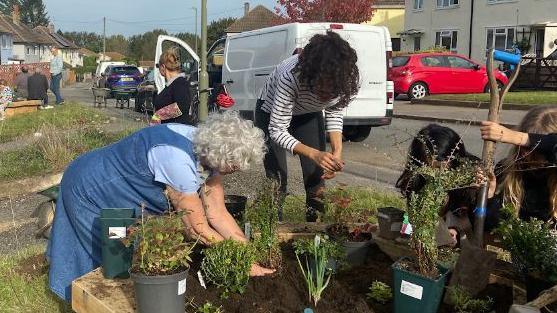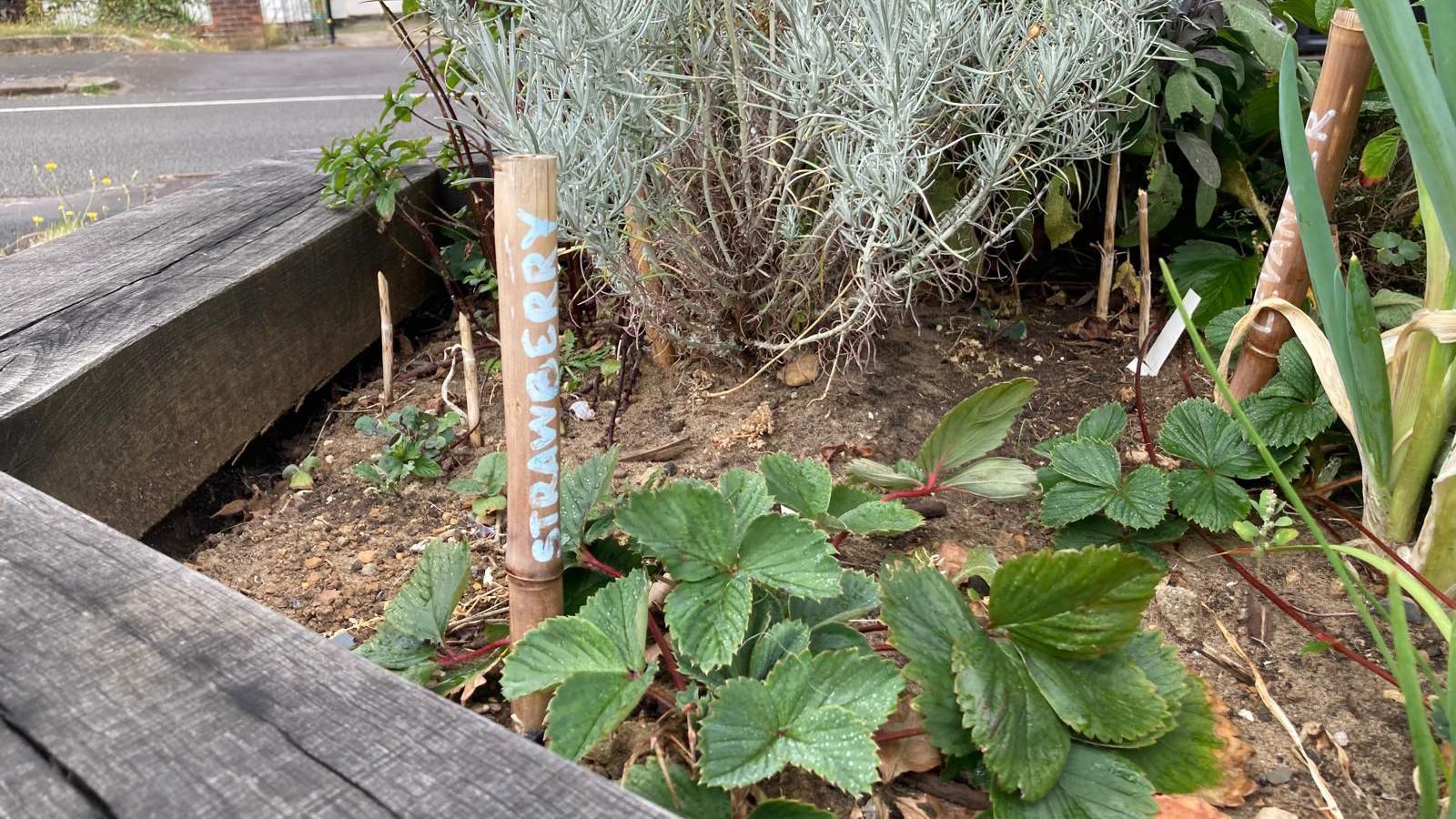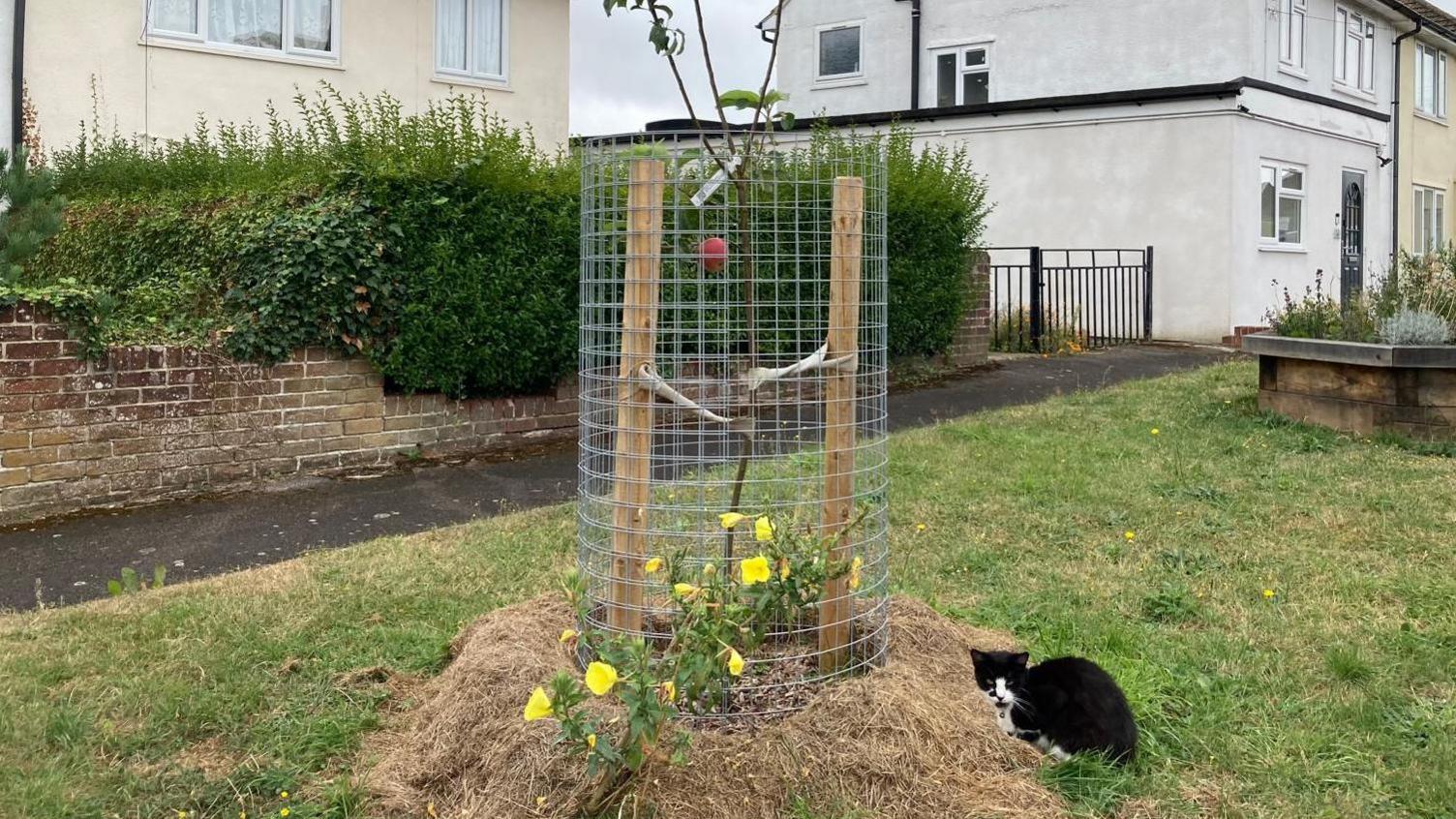Neighbours urged to grow food on pavements

Low-maintenance foods like strawberries and herbs were grown by residents on Malford Road
- Published
A guide for growing food on pavements and verges has been published to help communities transform their unused spaces.
The idea is part of the Edible Streets initiative, which was originally piloted in Barton, Oxfordshire in 2022.
Deemed a local success, the trial saw a number of planters installed on Malford Road and tended to by the road's residents.
The new guide, developed at Oxford Brookes University, offers a step-by-step approach to creating an Edible Street.

The trial in Barton has inspired similar initiatives across the UK
It describes "the pavement outside your front door" and "the grass verge you pass every day on your way to work" as places that could be used to grow fruit and vegetables.
Available on Oxfordshire County Council's website, the guide offers advice on selecting the right plants, engaging the community and getting permission to grow food on publicly-accessible land.
It also features original examples, including residents growing food in a disused laundry drying area in Lewisham Park, London.

By 2025, it is hoped an Edible Streets licensing system will be in place to help locals navigate red tape
Lydia, who lives on Malford Road and took part in the pilot, has apples, herbs and onions growing in a verge outside her house.
She said the project was as much about bringing neighbours together as it was about growing food.
"All the families came out... we saw faces we've never seen and we've lived on this road for 20 years," she said.
Dr Mina Samangooei, senior lecturer in the School of Architecture at Oxford Brookes University, and the Edible Streets research lead, said: "This guide provides communities with the knowledge and tools to make gardening an integral part of everyday life, even for those who are time-poor."
Edible Streets will assess the project's impact in the autumn.
Get in touch
Do you have a story BBC Oxfordshire should cover?
You can follow BBC Oxfordshire on Facebook, external, X (Twitter), external, or Instagram, external.
Related topics
More on gardening
- Published19 April 2024

- Published15 August 2023

- Published12 July 2023
